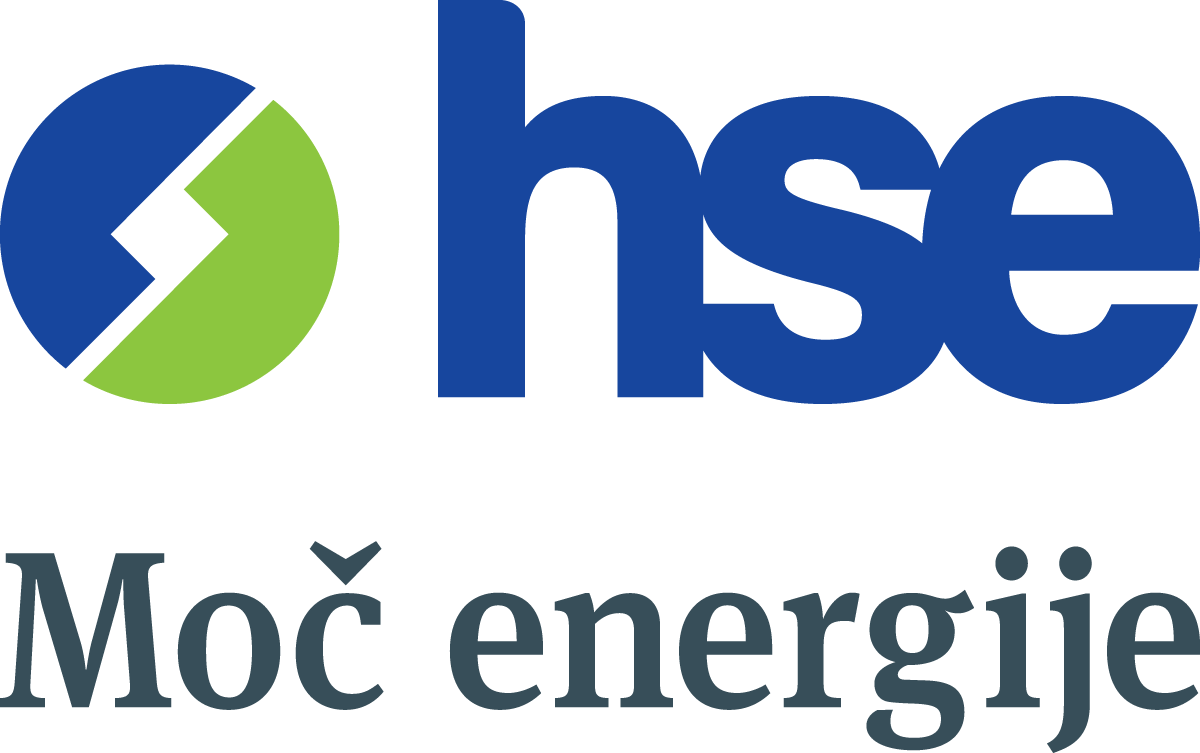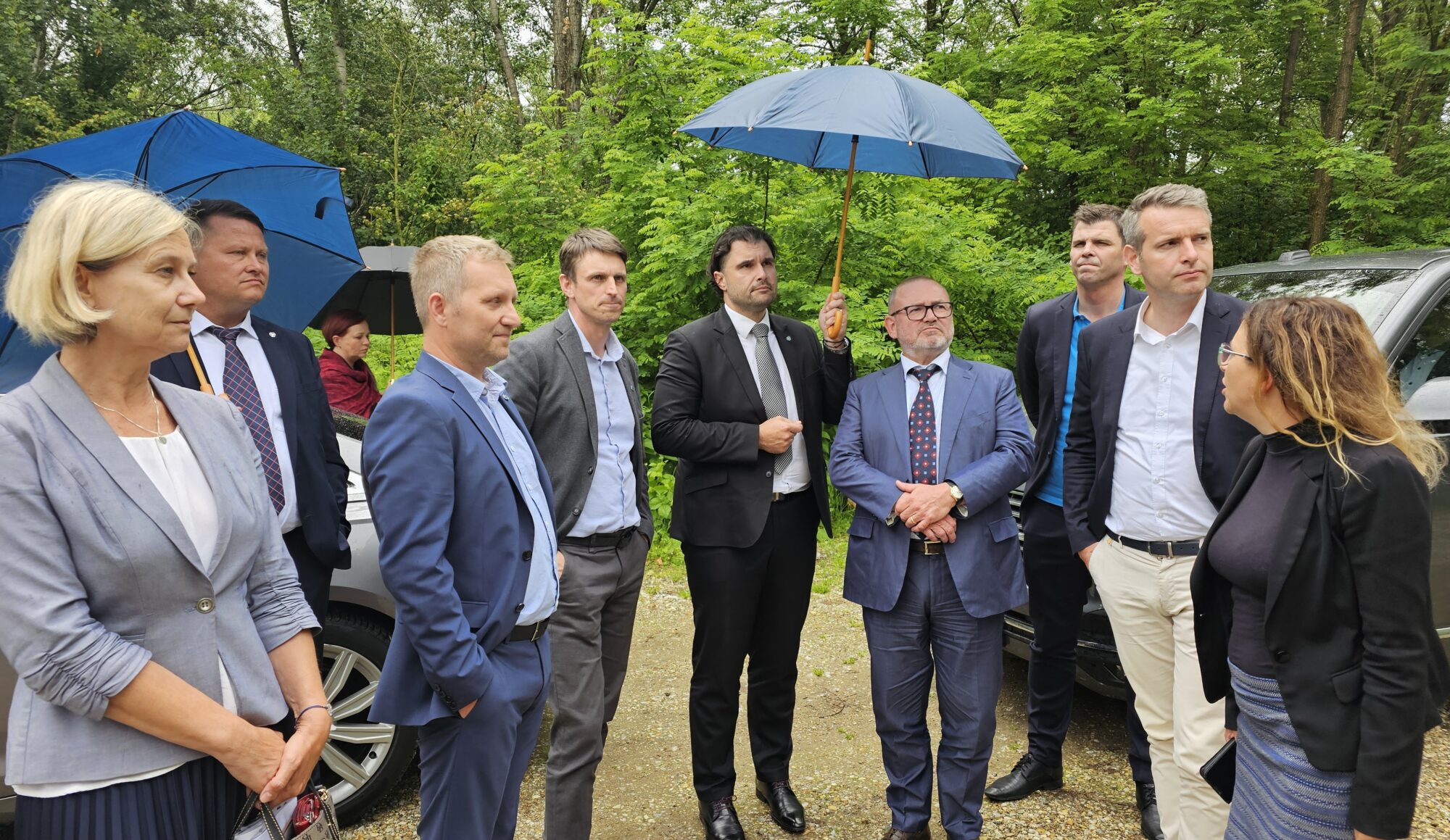The first Slovenian pilot geothermal power plant, which is operated by the companies Dravske elektrarne Maribor and Petrol Geo, and which also includes the partners of the project, was visited today by a Hungarian delegation: Minister of Energy Csaba Lantos, State Secretaries dr. Gabor Czepek and Attila Steiner, Ambassador of Hungary to Slovenia Andor David and Consul General of Hungary in Lendava Gertrud Kelemen. The Director General of DEM, mag. Damjan Seme, and his colleagues presented to the guests the operation of the pilot geothermal power plant and other strategic, implementation and development-innovative projects of the company in the field of renewable energy sources for electricity production in the green transition.
The geothermal power plant pilot project is based on the use of a completely novel manner of electricity production involving the application of a geothermal gravitational heat pipe (Slovenian patent SI 26426 A). What is special about a geothermal gravitational heat pipe is its use in a closed refrigerant circuit, which only requires one dry well for operation. An existing but abandoned well, Pg-8 in Čentiba near Lendava, is being used.
At the end of 2022, together with its partners, the company Dravske elektrarne Maribor, the largest producer of electricity from renewable sources, which operates as part of the HSE Group, started the underground part of the rehabilitation of the non-producing well Pg-8 at a depth of approximately three thousand metres in order to exploit the geothermal energy potential for the first geothermal power plant in Slovenia. Above-ground work, which included construction work and work on electrical and mechanical installations, started in April last year.
The first kilowatt hours of electricity were recently produced, but constant operation in the future will only be possible if the turbine part of the equipment is modified, as tests have shown that the power plant cannot currently operate permanently at the given thermal capacity of the Pg-8 well. Future steps will thus be aimed at finding solutions that will enable more constant operation of the turbine under the given conditions, which is where the first results of the innovative pilot project are leading us.
Mag. Damjan Seme, the Director General of Dravske elektrarne Maribor reiterated on the occasion: “Despite certain challenges that we face in the geothermal power plant pilot project, I am proud that Dravske elektrarne Maribor, together with our partners, are breaking new ground in the utilisation of deep geothermal energy, and that the project has been brought to the point where the first kilowatt hours of electricity have been produced. I believe that, by modifying the turbine part of the equipment, we will be able to establish a state that will enable constant operation and production and will be an encouragement for the upcoming projects of this kind. I am happy that our neighbours, with whom we exchanged opinions and views today and opened a path towards cooperation in the utilisation of deep geothermal energy for the production of electricity, are also interested in the project.”
“For many years, Hungary has been among the leading five countries in Europe in the direct utilisation of geothermal energy. Since the beginning of the previous decade, the extraction of geothermal heat energy has increased by more than four-fold, but given the favourable conditions in Hungary, we see many opportunities for increasing its use,” said Csaba Lantos, the Hungarian Minister of Energy, and added that “for the purpose of further development, we have drafted a National Geothermal Strategy, the creation of which is in the final phase. In accordance with the guidelines set out in the strategy, the intention is to double the use of energy by 2030. Increased use of geothermal energy could substitute for 1-1.2 billion cubic metres of natural gas by 2035. With planned measures and development, the use of geothermal energy could become a leading sector of the Hungarian green economy. When planning energy investments, we try to follow the best international practices, which is why this visit to Slovenia also serves to exchange experience for mutual benefit.”








